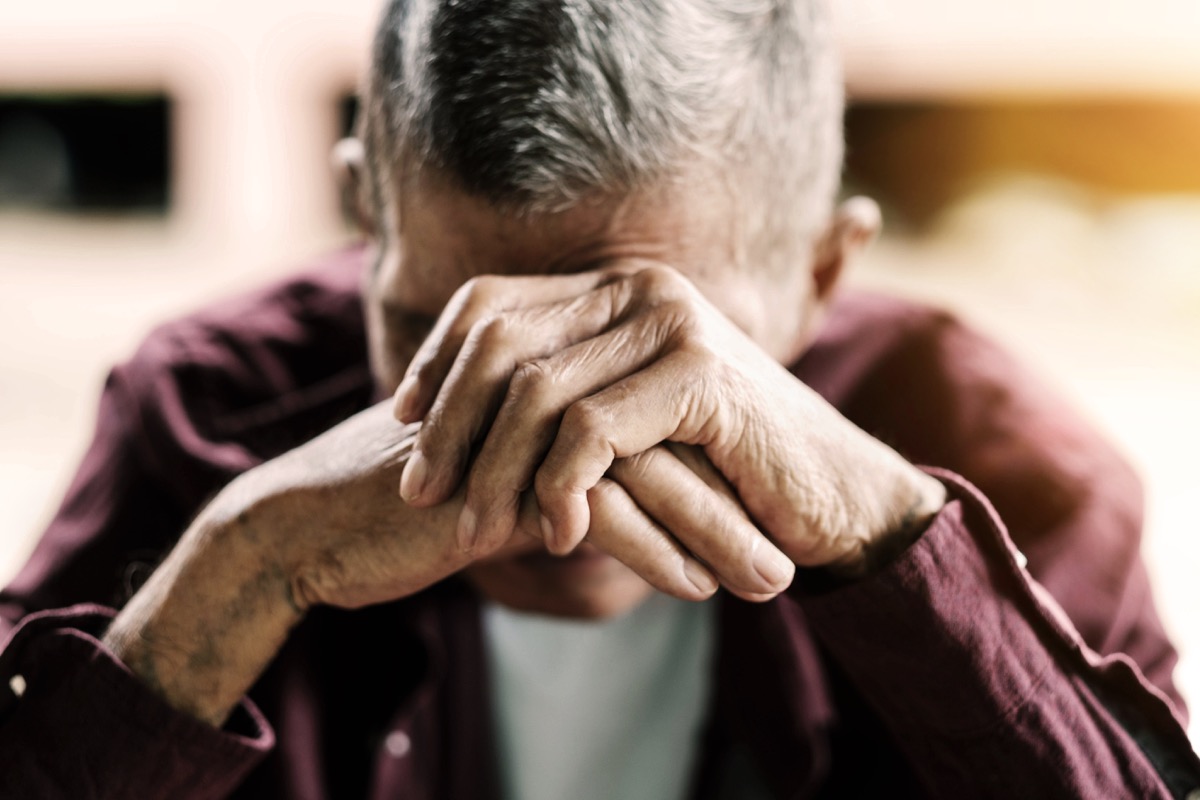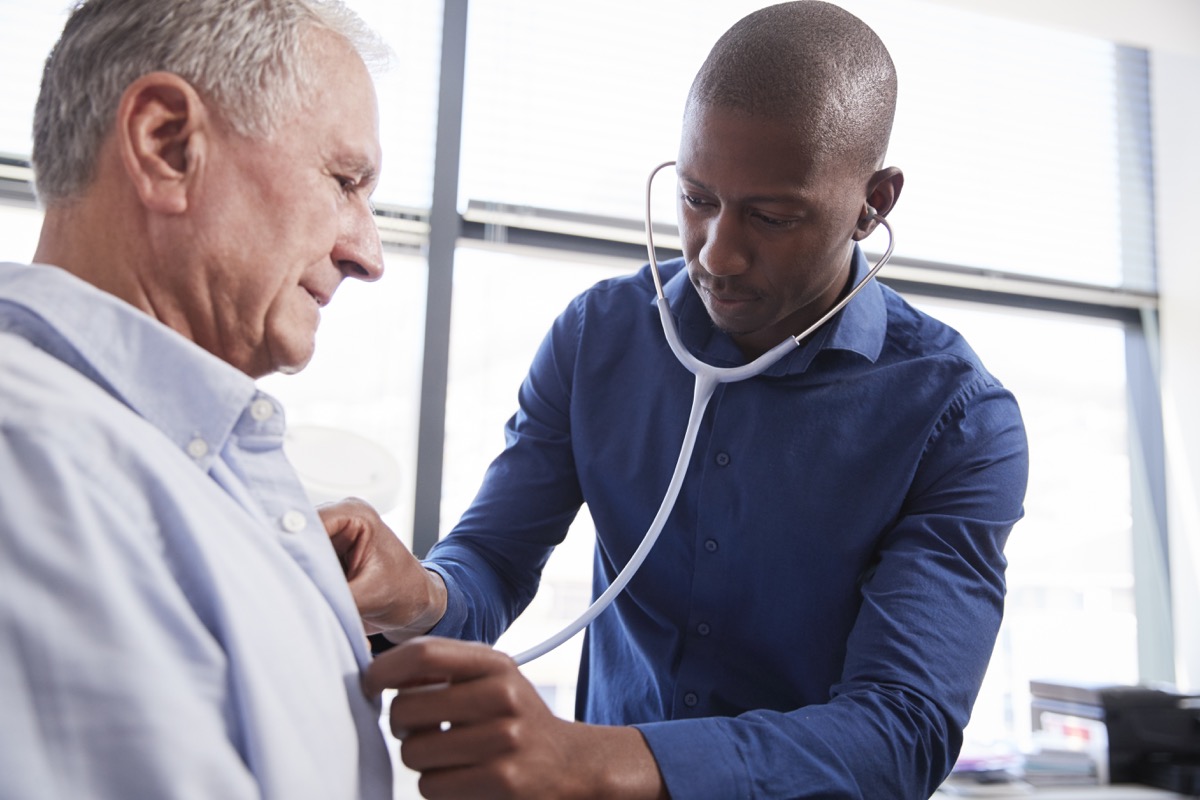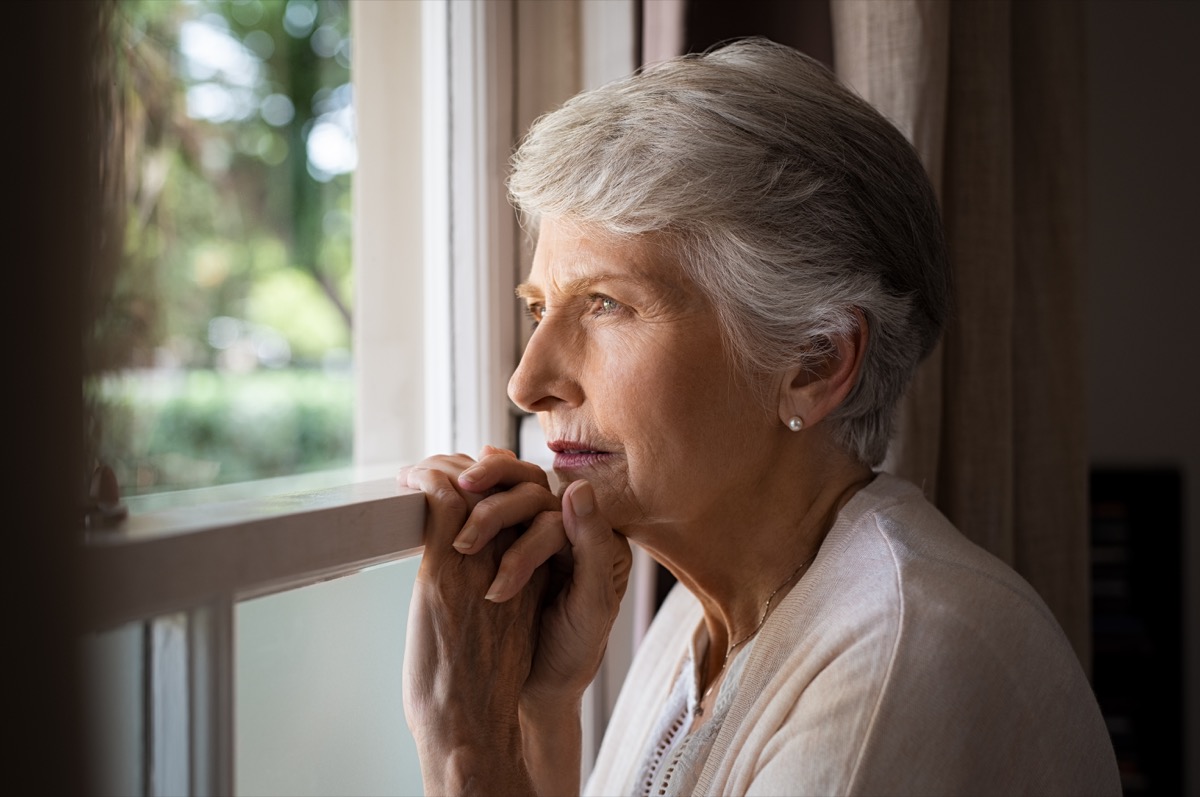There are some dementia risk factors that can’t be changed—your age, family history, and other genetic factors can increase your risk of developing the progressive and fatal condition. Yet experts say that outside of these factors, there are several simple ways to minimize your risk—beginning with everyday lifestyle changes. In particular, Craig Thomas, MD, director of population health for the Centers for Disease Control and Prevention (CDC), says there’s one thing you may be doing that makes you 50 percent more likely to develop dementia. The good news? He also says there are ways to avoid this “under-recognized risk to the public’s health”—and that awareness is the first step. Read on to find out which one thing may be putting you at increased risk of dementia and how to slash your chances of cognitive decline.
RELATED: If You Can’t Do This One Thing, You’re 5 Times More Likely to Get Dementia.


In a podcast interview presented by the CDC, Thomas shed light on one little-known risk factor for dementia: social isolation and loneliness. He explained that social connection is an essential part of not only our mental health and wellbeing, but also our physical health as it relates to cognitive decline.
“Human beings are social by nature, and high-quality relationships are vital for health and wellbeing. And, while the science of social relationships and their consequences on health have been documented for decades, the feelings of loneliness and social isolation remain an under-recognized risk to the public’s health,” Thomas shared. “Among older adults, there’s a 50 percent increase in risk for dementia, including the most concerning type—Alzheimer’s disease,” he added.
RELATED: 91 Percent of Older Adults With Dementia Have This in Common, Research Says.


A recent report from the National Academies of Sciences, Engineering, and Medicine (NASEM) found that one-third of American adults aged 45 and older report feeling lonely—and that number is even higher for those over the age of 65. The report notes that risk is highest for older adults who live alone, have lost a family member or friend, experience hearing loss, or have an underlying health condition (for example diabetes, heart disease, or arthritis).
For many, the pandemic has pushed social isolation to new heights. “Regardless of living situation, interactions with anyone outside the home have been severely limited for everyone,” Julianne Holt-Lunstad, PhD, director of the Social Connections and Health Research Laboratory at Brigham Young University and co-author of the report, explained to Health Affairs last year. “Preliminary surveys suggest that within the first month of COVID-19, loneliness increased by 20 to 30 percent, and emotional distress tripled.” Holt-Lunstad noted that her team’s research indicated that the prevalence of both social isolation and loneliness may have been vastly underreported in the past.
Given the link between isolation and cognitive decline, experts are concerned that dementia rates will continue to soar unless major changes are made for


Dementia isn’t the only health risk associated with loneliness and isolation. “Social isolation significantly increased a person’s risk of premature death from all causes, a risk that may rival those of smoking, obesity, and physical inactivity,” the CDC said, citing the NASEM report.
While having an underlying condition can make social isolation more likely, the reverse is also true: social isolation is known to increase your risk of serious medical conditions such as heart disease and stroke by 29 and 32 percent, respectively. Social isolation is also associated with worse outcomes for those health problems. “Loneliness among heart failure patients was associated with a nearly four times increased risk of death, 68 percent increased risk of hospitalization, and 57 percent increased risk of emergency department visits,” warned the CDC.
For more health news sent directly to your inbox, sign up for our daily newsletter.


For some, loneliness and isolation can crop up unexpectedly, and it can sometimes be difficult to distinguish between the two. However, CDC experts say that because these are distinct conditions with different causes, it can be helpful to try to pinpoint which condition you’re suffering from to better address its underlying triggers. “The best way to describe the difference is that loneliness is a subjective feeling of being alone—even when you’re surrounded by people. I think most of us have felt that way at some point in our lives. Social isolation, on the other hand, is the lack of social relationships, particularly meaningful relationships,” explains Thomas, adding, “Both of these topics are viewed as social determinants of health.”
If you’ve been suffering from loneliness or social isolation, there are several ways to lower your risk of negative outcomes—including dementia. Speak with your doctor about any health conditions that may be preventing you from connecting with others, and check out the National Institute of Health’s toolkit for fighting social isolation.
And, if you know of someone who might be suffering from loneliness or isolation, make an effort to reach out and connect. It may make all the difference in their mental and physical health.
RELATED: If You’re Driving Like This, It Could Be an Early Alzheimer’s Sign, Study Says.